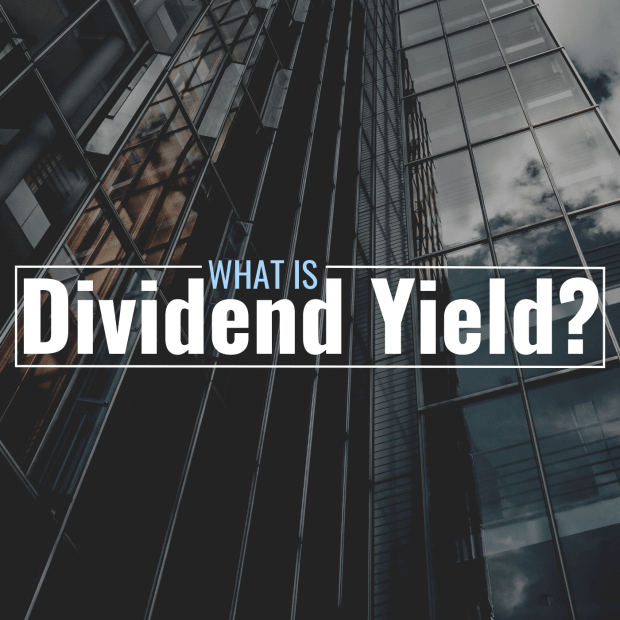
What Is Dividend Yield?
Dividend yield is the percentage of a company’s current stock price that they pay to their stockholders (per share) in dividends annually. In other words, it is the ratio of dividends paid to stock price.
Because stock price serves as the divisor in this metric, and stock price changes constantly, dividend yield is dynamic—it changes all the time. As a stock’s price goes up, its dividend yield goes down, and as a stock’s price goes down, its dividend yield goes up.
How Is Dividend Yield Calculated?
Dividend yield is calculated by adding up the total dividends a company paid per share over the course of the last year, then dividing this sum by its current stock price. The resulting number is a decimal that is typically expressed as a percentage.
Dividend Yield Formula
DY = All Dividends Paid in the Last Year / Current Stock Price
Dividend Yield Example: AT&T (NYSE: T)
Over the course of 2020, AT&T paid dividends of $0.52 to its shareholders quarterly. This means that in total, they paid $2.08 per share that year. As of December 31st, 2020, AT&T’s stock closed at $28.76. So what was AT&T’s dividend yield as of December 31st, 2020?
Dividend Yield = Dividends Paid Over Last Year / Stock Price
DY = (0.52 * 4) / 28.76
DY = 2.08 / 28.76
DY = 0.072
DY = 7.2%
Is a High Dividend Yield Good?
For investors seeking passive income by way of dividend payments, a high dividend yield is definitely a good thing. This is especially true for companies whose stock prices are relatively stable or are trending upward over time.
That being said, dividend yield can increase significantly due to a stock losing value, which isn’t necessarily a good sign when it comes to the health of the stock itself. Dividend yields that are both relatively high and relatively stable are the most desirable for investors who wish to receive regular dividend payments while also watching their portfolio increase in value over time.
What Is a Good Dividend Yield?
Average dividend yield varies quite a bit by industry, so what qualifies as a “good” dividend yield for one type of stock might actually be a relatively low dividend yield for another type of stock. That being said, dividend yields most often fall somewhere between 0.3% and 6% barring volatility in any underlying stock.
What Types of Stocks Have the Highest Dividend Yields?
Dividend yields vary wildly by industry (and by company within each industry), but in general, the following industries are thought to have relatively high average dividend yields.
- Utility companies
- Telecommunications companies
- Energy companies
- Chemical companies
- Regional and money center banks
- Real estate investment trusts







